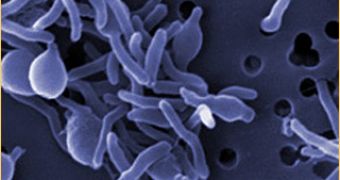The journal Nature Climate Change recently saw the publication of a new research stating that, as a result of climate change and global warming, the present distribution of various infectious diseases stands to be significantly altered.
This is turn can very easily lead to humans and wildlife species becoming more prone to suffering from very certain conditions.
As explained by the scientists who investigated this potential threat to public health, changes in terms of worldwide temperature variations are likely to affect the biological responses of both hosts and parasites.
Apparently, this phenomena already occurred in the case of frogs living in Latin America, which recently experienced a decline in their population due to their becoming more vulnerable to a pathogenic fungus known as Batrachochytrium dendrobatidis.
The fact that frogs in Latin America saw their immune systems compromised because of changes occurring in their surrounding environment has scientists worried about this happening to other animal species as well, and even to humans.
“Changes in mean temperature and precipitation can dramatically influence disease outcomes, particularly for parasites with ectothermic hosts and vectors. As well as affecting mean temperature and precipitation, climate change is expected to alter the variability of these factors,” states the aforementioned research.
The study further explains that a potential increase in the number of worldwide cases of infectious diseases can be explained by referring to how, as opposed to more complex organisms, parasites tend to accommodate much faster to new living conditions, precisely because of their rather simple make-up.
This piece of information need be coupled with the fact that climate change will not just bring about an increase in global temperature, but significant weather instability, which means that those who find it easier to navigate through rapidly-shifting environmental conditions are likely to end up winning on the longer-run.
It is our opinion that this is troubling news indeed, as the results of this study stand as proof that human-driven climate change and global warming may lead to rather unpredictable effects in terms of impact on biodiversity and public health.

 14 DAY TRIAL //
14 DAY TRIAL //